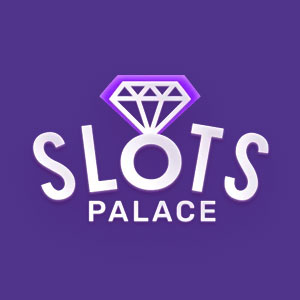Is Online Gambling Legal in the Czech Republic?
Yes, online gambling is legal, but only under specific conditions set by national law. The primary law governing this activity is Act No. 186/2016 Coll., on Gambling (the “Gambling Act”). This law lays out what counts as gambling, what kinds of games are allowed, and how operators must be licensed.
Under the Gambling Act, gambling is defined as any game of chance, betting, or lottery in which players wager something of monetary value without a guaranteed return, and where the outcome depends fully or partly on chance or an unknown event. Winnings are typically paid in money, though material goods or services are allowed in certain lottery types.
The law officially recognizes only the following gambling categories:
- Lotteries
- Odds betting
- Totalisator games
- Bingo
- Technical games (e.g., slots)
- Live games (e.g., roulette, blackjack)
- Raffles
- Small-scale tournaments
Any game that falls under the general definition of gambling but doesn’t fall into one of these categories is not permitted under Czech law, whether it is an online or land-based entity.
Gambling Regulators and Licensing in the Czech Republic
The Czech gambling market is overseen by the Ministry of Finance, which acts as the primary regulator for all legal gambling activity in the country. While it handles licensing, oversight, and enforcement, it is not a dedicated authority for gambling. Its broader financial focus means enforcement tends to be more administrative than player-focused, which has created space for some offshore platforms to operate in a gray area, especially those that make active efforts to serve Czech players.
The licensing process includes several technical and operational requirements. Operators must first obtain an initial license, which confirms they’re eligible to operate in the market, followed by a basic license for each gambling activity they plan to offer.
To qualify for a license, operators must:
- Be based in the Czech Republic, the EU, or the EEA
- Prove financial stability (own capital and assets of at least CZK 50 million [~€2,000,000])
- Have a transparent ownership structure and identify all beneficial owners
- Submit audited financial statements
- Provide clean criminal records and debt-free confirmations for the company and key individuals (from both Czech and foreign authorities)
- Deposit a surety of at least CZK 20 million [~€800,000], depending on the expected gambling tax group
- Show no bankruptcy or liquidation history within the past three years
- Provide technical documentation for each gambling product (game plans, server locations, hardware checks, etc.)
- Run their site in the country’s native language and connect their system to the Ministry’s monitoring tools
Once licensed, the operator must maintain compliance with all local laws, submit regular reports, and cooperate with ongoing supervision. Sites that don’t meet these standards (or operate without a license) are added to a public blacklist and targeted through enforcement measures.
Enforcement Focus
Enforcement in the Czech Republic focuses on cutting off access to unlicensed operators rather than punishing individual players. Local banks, payment processors, and internet service providers are required by law to block financial transactions and access to gambling sites that don’t hold a license from the Ministry of Finance. The Ministry maintains a public list of banned domains, which is regularly updated and used as the basis for payment and DNS-level blocks.
Despite these efforts, some offshore casinos still find ways to reach players. They may use mirror sites, cryptocurrency transactions, or third-party payment services to avoid restrictions. While players aren’t prosecuted for using these sites, the legal protections that come with licensed platforms (such as dispute resolution and guaranteed payouts) don’t apply. Winnings from offshore casinos may also become an issue if not declared, especially when large sums are involved.
Withdrawal Times at Czech Republic Casinos
Withdrawal speed depends on more than just the payment method. One of the biggest factors is how long the casino takes to process the request internally, before the money is even sent out. On paper, both local and offshore casinos usually state processing times of up to 3 business days, but how that plays out in practice varies.
Licensed Casinos
- Internal processing times are usually faster and more consistent.
- Many licensed sites process withdrawals within a few hours, especially during business hours and once account verification is complete.
- Some operators handle reviews automatically for smaller withdrawals, speeding things up even more.
Offshore Casinos
- Internal processing is often listed as up to 3 business days, and casinos often take their time.
- Approvals may be done manually, only on certain weekdays, or in batches, especially for crypto or large withdrawal requests.
- Delays are more common if the platform has limited support hours or less transparent internal procedures.
While the average stated timeframe for both types is similar, local casinos often approve requests faster, giving players a better shot at same-day or next-day withdrawals.


